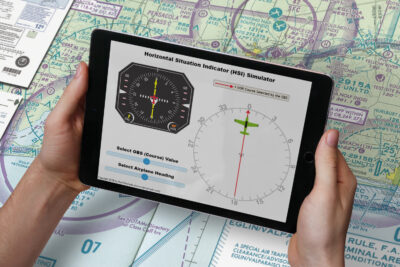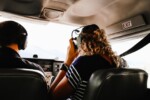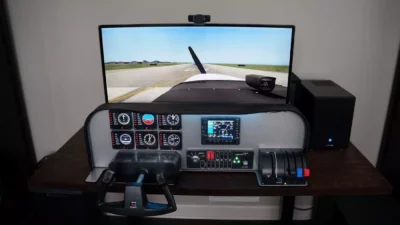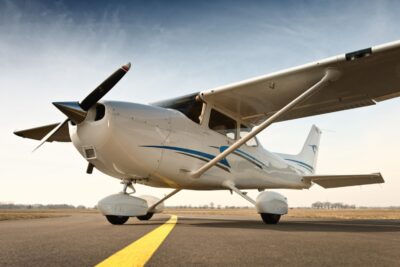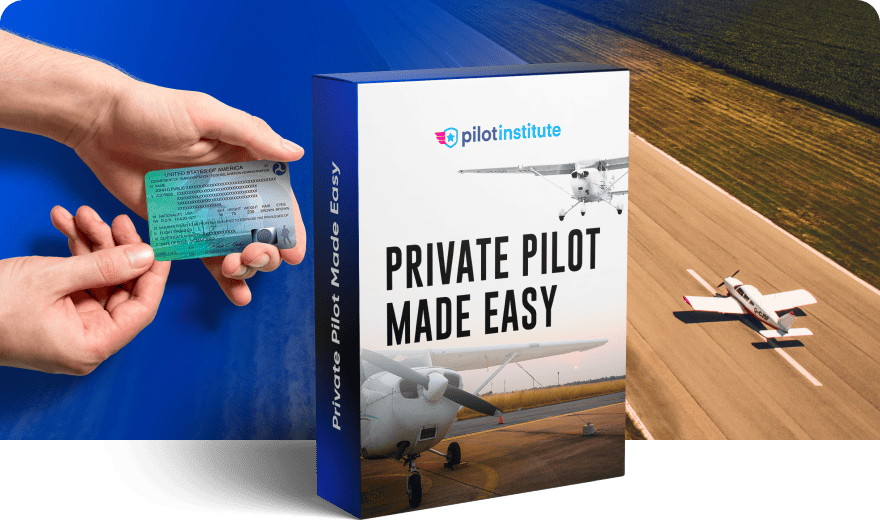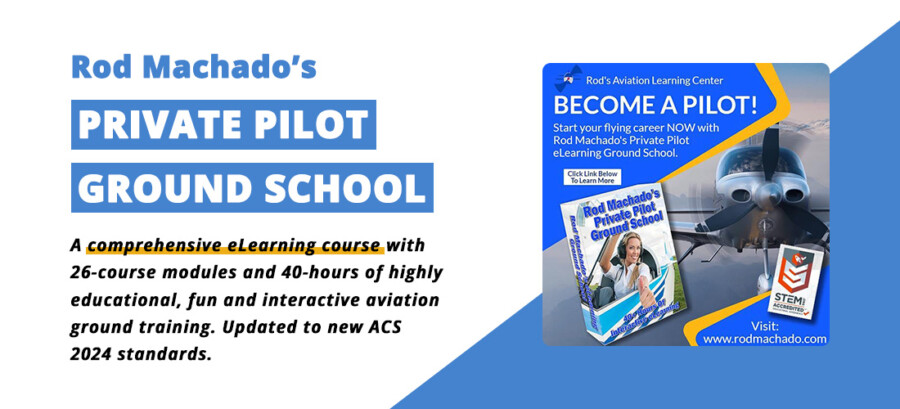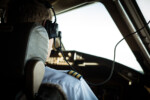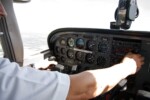10 Reasons Why Getting a Private Pilot’s License is Worth It
29 September 2023 | Updated on February 05, 2024
The idea of soaring through the skies, watching the world unfurl beneath you, is a dream harbored by many. But is it worth the time, effort, and financial investment to obtain a private pilot’s license? At first glance, the vast skies, the sense of freedom, and the achievement of piloting an aircraft solo might seem like sufficient reasons.
However, like any endeavor, the journey to becoming a private pilot comes with its own set of pros and cons. Let’s delve deep and weigh whether the experience truly elevates life’s adventure.

What is a Private Pilot’s License?
Before we get deep into all the nitty-gritty, let’s start with the basics. Think of a Private Pilot’s License (often abbreviated as PPL) as your golden ticket to the skies. It’s like your driver’s license, but instead of allowing you to hit the road with your car, it grants you permission to cruise the skies in a plane. Cool, right?
With a PPL in your pocket, you can fly for fun, travel to new places, or take your friends and family on aerial adventures. However, there’s a catch: you can’t get paid to fly passengers or cargo. For that, you’d need different types of pilot licenses. But hey, for most of us dreaming about freedom in the skies, the PPL is a perfect starting point.
So, in a nutshell, a Private Pilot’s License is your personal pass to explore the skies, on your own terms, and share the joy of flying with your loved ones. It’s all about the adventure and the breathtaking views up there! Ready to dive deeper? Let’s go!
10 Reasons Why Getting a Private Pilot’s License is Worth It
1. Freedom to Explore
Imagine a world where you can wake up on a crisp Saturday morning, look outside, and say, “I feel like going somewhere amazing today.” Well, with a Private Pilot’s License (PPL), that world becomes your reality.
When you hold a PPL, you have the keys to your own adventure. You can hop into your small aircraft, taxi down the runway, and take off to explore places you’ve never been before. Whether it’s a remote airstrip nestled in the mountains or a charming little airport on an island, the possibilities are endless.
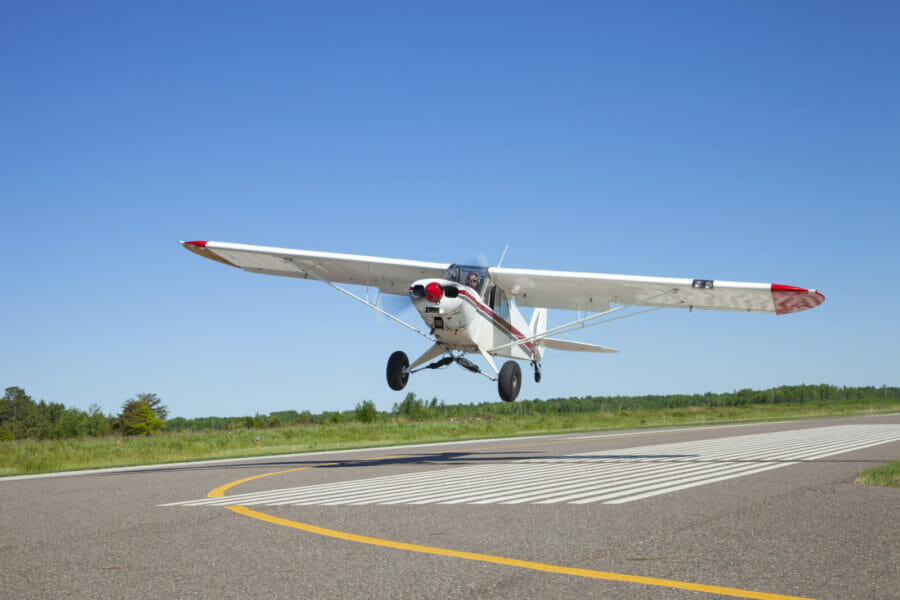

Small white single engine airplane takes off from a municipal airfield in rural Minnesota
2. Impress Your Friends and Family
Let’s be honest – how many people do you know who can fly a plane? Being a pilot is undeniably cool, and you’ll have some fantastic stories to share at parties.
Picture this: You walk into a room, and the conversation naturally steers toward your interests and hobbies. As you casually mention that you’re a licensed pilot, there’s an undeniable spark of awe and admiration in the eyes of your friends and family. Being a pilot is not just a skill; it’s a conversation starter, an icebreaker, and a source of endless fascination for those around you.
3. Expand Your Horizons
Getting your Private Pilot’s License is about broadening your horizons in ways you might never have imagined. It’s like unlocking a new dimension in your life. The world suddenly becomes smaller, more accessible, and full of exciting possibilities. Flying introduces you to a new set of skills, a different way of thinking, and a unique perspective on the world.
As a pilot, you’ll continually learn and grow. Every flight is a chance to refine your aeronautical knowledge, improve your decision-making skills, and enhance your problem-solving abilities. The challenges you’ll face in the cockpit will push you to become a better version of yourself.
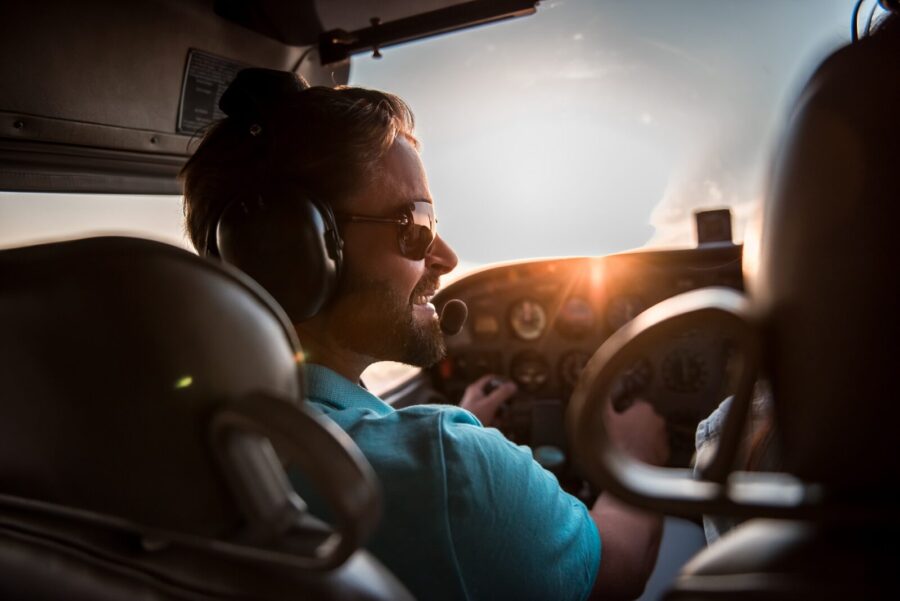

Back view from the inside of the plane, couple in aviation headsets is ready to fly
4. Join an Exclusive Club
Becoming a pilot grants you access to an exclusive and tightly-knit club that’s unlike any other. It’s a community of individuals who share your passion for aviation and adventure, and being part of this club brings with it a unique set of advantages.
First and foremost, you’ll find camaraderie among fellow aviators. These are people who understand the thrill of soaring through the skies and the satisfaction of mastering the art of flight. The friendships you build within the aviation community can be some of the most enduring and enriching relationships of your life.
But it’s not just about making friends; it’s also about networking. In the aviation world, connections matter. You might meet seasoned pilots who can offer guidance, mentorship, or even job opportunities if you decide to pursue a career in aviation. Your fellow aviators can also be a valuable source of advice and support as you navigate your journey in the skies.
5. Brain Boost
Learning to pilot an aircraft isn’t just about the physical act of flying; it’s also a mental workout that can significantly boost your cognitive abilities. Flying requires a unique blend of skills, including analytical thinking, problem-solving, coordination, and quick decision-making.
From the moment you step into the cockpit, your brain is in overdrive. You’ll be processing information from instruments, communicating with air traffic control, and making split-second decisions in constantly changing conditions. This mental challenge can improve your ability to focus, stay calm under pressure, and adapt to new situations – skills that can benefit you both in and out of the cockpit.
The same goes for starting your flight training with a private pilot ground school. It will challenge you to discover new areas of aviation, and the world of physics, aerodynamics, airlaw and more.
6. Conquer Fears
Earning a Private Pilot’s License is a transformative experience that empowers you to conquer any fears you might have had about flying. If the thought of being up in an aircraft at high altitudes or facing turbulence has ever made you anxious, becoming a pilot is your ticket to overcoming those concerns.
As you embark on your pilot training journey, you’ll not only gain a deep understanding of how aircraft operate but also learn about aviation safety and risk management. You’ll become proficient in handling emergencies and practicing procedures to ensure your confidence and preparedness. Over time, what once felt intimidating or uncertain will become second nature. Turbulence, once a source of unease, will seem like a mere ripple in the sky, and flying through clouds will become an enchanting experience rather than a daunting one. This newfound sense of control and mastery extends beyond the cockpit, boosting your confidence to tackle other challenges in life with greater resilience and courage.
7. Unique Adventures (and Dates)
Dinner and a movie? That’s old news. How about a sunset flight over the coastline or a quick trip to a nearby city? Sounds like a date to remember!
Having a Private Pilot’s License opens up a world of unique and unforgettable date opportunities. But it’s not just romantic outings that become extraordinary. You can plan thrilling group adventures with friends or family, taking them on scenic flights to explore new places. Whether it’s a surprise birthday flight or a weekend getaway to a remote cabin, these airborne adventures create memories that stand out and stories that are shared for years to come. So, if you’re looking for a way to infuse excitement and romance into your life, having a PPL can elevate your experiences to new heights, quite literally.
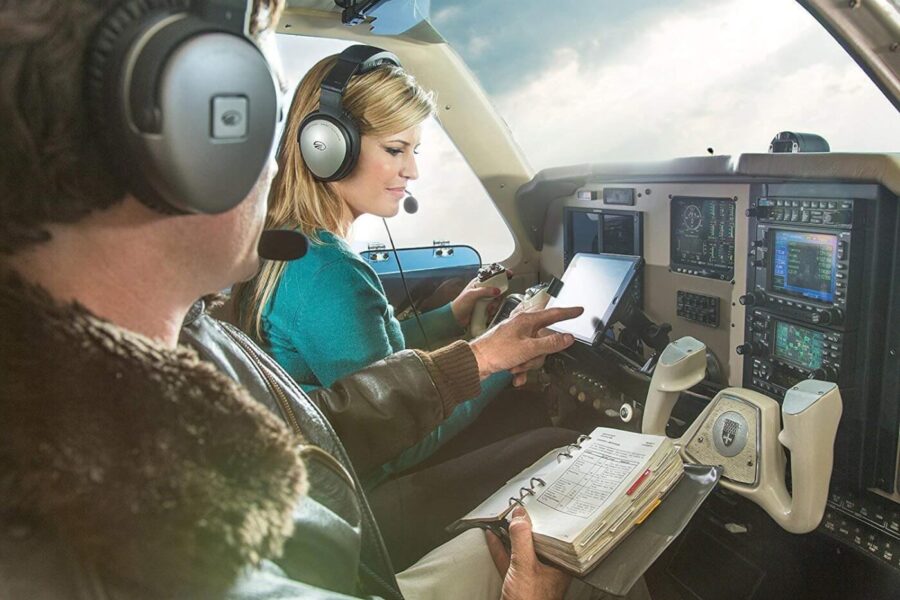

8. Build Discipline and Responsibility
Flying is fun, but it also teaches responsibility. You’re in charge of the safety of your passengers and your aircraft.
As you progress in your pilot training, you’ll develop habits of thorough pre-flight inspections, precise communication with air traffic control, and adherence to safety protocols. These habits naturally spill over into your daily routine, making you more diligent and dependable in all your endeavors.
9. Sense of Achievement
The journey to earning a PPL is filled with challenges. But the moment you receive that license? It’s a feeling of accomplishment like no other.
Every flight, every lesson, and every successful landing represents a step toward this goal, making the accomplishment all the more rewarding.
The skills and qualities you’ve cultivated on your path to becoming a pilot, such as discipline, problem-solving, and resilience, extend beyond aviation and positively influence various facets of your life. So, if you’re seeking a fulfilling and empowering endeavor, obtaining your Private Pilot’s License is a journey toward profound satisfaction and personal growth.
10. Lifelong Learning
Becoming a private pilot isn’t the end of your aviation journey; it’s just the beginning. Aviation is a field that constantly evolves with advancements in technology and regulations. This means that as a pilot, you’re signing up for a lifelong journey of learning and growth.
After obtaining your Private Pilot’s License, you can pursue additional ratings and endorsements, such as instrument or multi-engine ratings, which open up new horizons in aviation. You can also explore specialized areas like aerobatics, seaplane flying, or gliding, each offering unique challenges and experiences.
Commitments of Becoming a Private Pilot
While the allure of soaring through the skies and experiencing the thrill of flight is undeniable, it’s crucial to recognize that earning a Private Pilot’s License (PPL) comes with certain commitments and responsibilities. These commitments are an integral part of your journey to becoming a safe and competent pilot. Here’s a closer look at what you can expect:
Financial Commitment
Acquiring a PPL involves a financial investment. The cost typically includes flight training, ground school materials, examination fees, aircraft rental, and more. While it’s an investment in a lifelong passion, it’s essential to budget for this commitment and ensure it aligns with your financial goals.
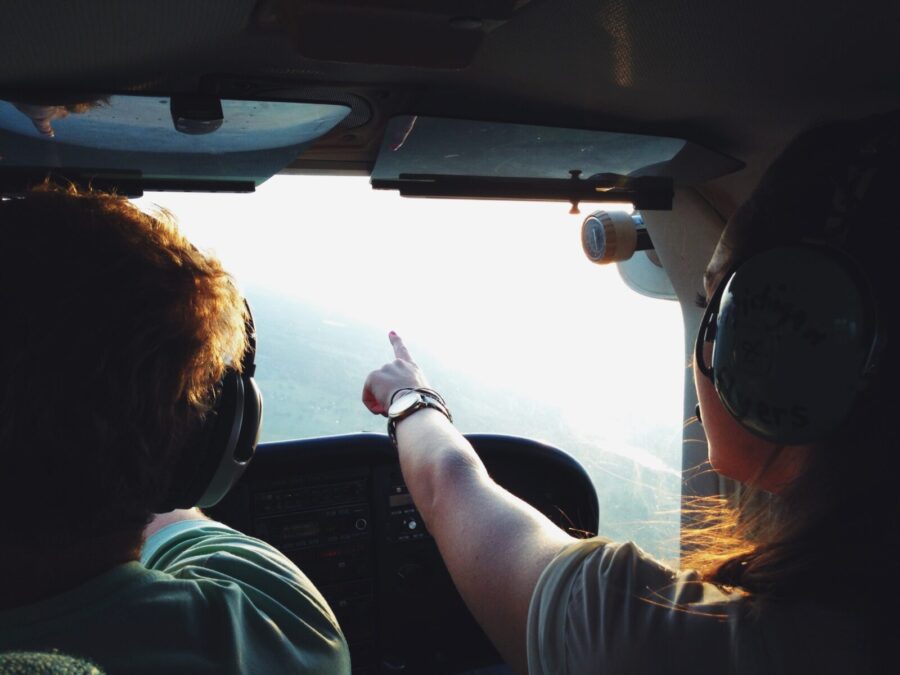

Time Commitment
Flying demands time and dedication. Flight lessons, pre-flight inspections, and post-flight briefings are all part of the training process. It’s not unusual for flight lessons to take several months to complete. Additionally, weather conditions can affect the frequency of your lessons, so flexibility in your schedule is vital.
Safety First
As a pilot, safety is paramount. Commitment to safety practices is non-negotiable. You’ll undergo rigorous training in safety protocols and adhere to standardized procedures for every flight. This commitment extends to pre-flight checks, emergency procedures, and ongoing awareness of safety issues.
Currency Requirements
To maintain your PPL, you’ll need to meet specific currency requirements, such as completing regular flight reviews, maintaining landing and night flying currency, and staying current on instrument flight rules if applicable. These requirements ensure that your skills are sharp and your knowledge up-to-date.
Responsibility
As a pilot, you’re responsible not only for your safety but also for the safety of your passengers and the aircraft. This sense of responsibility extends to decision-making, flight planning, and adhering to air traffic control instructions. It’s a commitment to prioritize safety above all else.
Continuous Learning
Aviation is a dynamic field with ever-evolving technology and regulations. Committing to continuous learning is essential. You’ll need to stay informed about changes in aviation rules and advancements in aircraft technology to ensure you’re operating safely and within the law.
While these commitments are essential aspects of the journey to becoming a private pilot, they are also what make the experience both rewarding and enriching. They instill discipline, responsibility, and a deep appreciation for the privilege of flying. By embracing these commitments, you’ll not only earn your wings but also become a safer and more knowledgeable aviator, fully prepared to explore the skies with confidence.
Learning tip: A ground school course is not only useful when preparing for your FAA written test, it’s also a great way for experienced pilots to brush up on some knowledge or prepare for future check rides.












